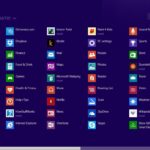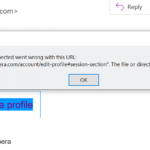You recently received a call from the number 888-376-4805 out of the blue? The person on the other end claimed to be working for the Microsoft Refund Department and wanted to refund you due to “shutdown services”? You promptly hung up but still want to learn more about the intent of the caller? Then this article is going to be of use to you.
An Analysis Of The Situation

Overall, you made a wise decision by hanging up as calls that come from the number 888-376-4805 usually play a key role in scamming schemes. Here is how a standard scamming scheme unfolds: In the beginning, scammers call the victims to tell them that Microsoft likes to refund them. Typical reasons include “Microsoft is shutting down services”, “Microsoft can no longer uphold their part of the contract” and so on. Regardless, all scammers insist on offering a refund to the victims online and want them to reveal their bank accounts, usernames, password, etc.
Unsurprisingly, once scammers manage to get their hands on sensitive details, they would proceed to use them for malicious purposes. As a result, once it comes to calls coming from the number 888-376-4805, you should ignore them altogether.
Frequently Asked Questions

What happens if I ask to be refunded via checks?
In most of the cases, scammers make it clear that they only offer refunds via PayPal, Western Union, … If you ask the scammers to mail you a check, it’s highly likely that they would become rude and refuse to do so.
What kinds of organizations do scammers usually claim to be from?
To make them sound credible, scammers tend to claim that they work for:
- Microsoft Research and Development Team
- Windows Technical Department Support Group
- Microsoft Support
- Microsoft Tech Support
- Windows Service Center
- Windows Help Desk
What should I do if I receive calls from 888-376-4805?
If you receive a scamming call, you should first report it to Microsoft via the official channel to help them stop cybercriminals. Alternatively, you may report the matter to the authorities.
For instance, if you reside in the US, you can report the scamming scale using the FTC Complaint Assistant form. Canadian residents can ask for support on the issue by contacting the Canadian Anti-Fraud Centre (CAFC). For those who live in the UK, National Fraud & Cyber Crime Reporting Centre can offer assistance.
What are unsolicited calls?
An unsolicited call is a call made to your device without your consent. Most unsolicited calls come from telemarketers but you may also receive unsolicited calls from cybercriminals. The calls may include voicemails, spam calls, real persons, etc.
How do I block unsolicited calls?
About blocking unsolicited calls, a couple of ways exist. One way to block unsolicited calls is to use your phone’s built-in call blocking. Another way is to add your number from the government-run National Do Not Call Registry. Last but not least, you can install a third-party call-blocking app to mitigate the disturbance caused by unsolicited calls.
How can I identify fraudulent calls?
If someone suddenly calls you while claiming to be from Microsoft, the government and so on, there is a good chance that the call is fraudulent. Such entities rarely contact people without prior correspondence through mediums such as email. Additionally, if the caller is marking services/products that sound too good to be true, it probably is. You should always be cautious whenever someone offers freebies, cash prizes, debt waivers, and all-expense-paid travel over the phone.
Another sign to identify a fraudulent call is a sense of urgency: The caller keeps asking you to do something as soon as possible.
What is the National Do Not Call Registry?
The National Do Not Call Registry is a government-run service that allows users to back out of receiving unsolicited calls. It helps you get some peace and quiet as telemarketers won’t bother you around the clock. However, even if you add your number to the National Do Not Call Registry, you may still receive calls from organizations such as charities, non-profits, political parties, and legitimate survey organizations.

As PCWorld’s senior editor, Mark focuses on Microsoft news and chip technology, among other beats. He has formerly written for PCMag, BYTE, Slashdot, eWEEK, and ReadWrite.









